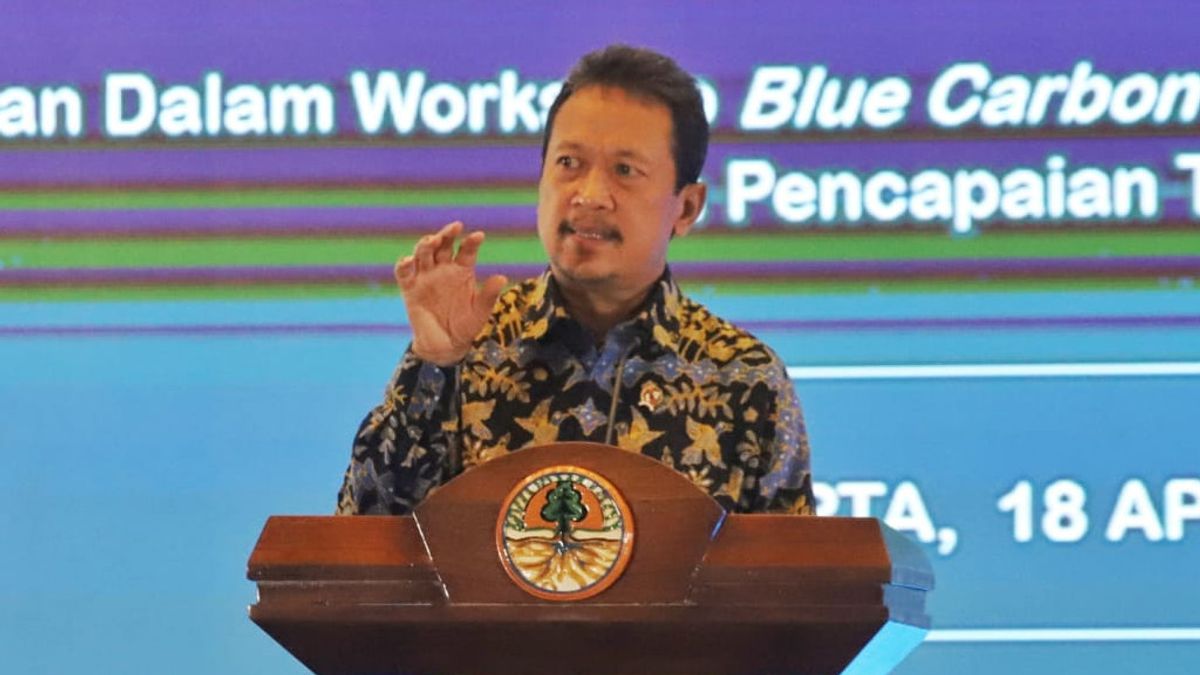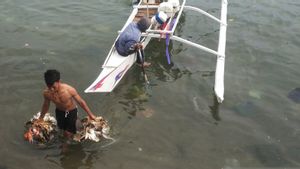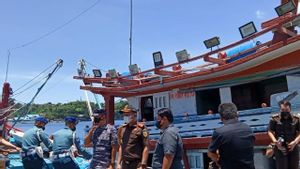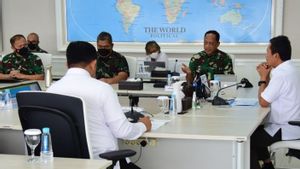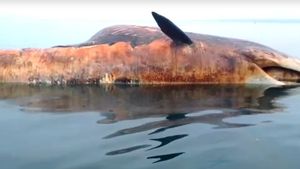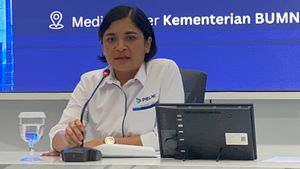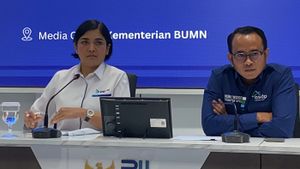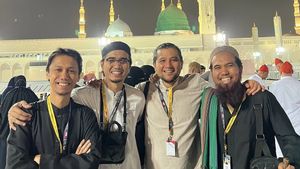JAKARTA - The Minister of Maritime Affairs and Fisheries, Sakti Wahyu Trenggono, revealed the ministry's blue economy strategy to improve marine health to curb climate change and accelerate sustainable marine-based economic development.
Strengthening blue carbon ecosystems, namely expanding and strictly maintaining conservation areas for mangroves, seagrass beds, and coral reefs. This includes a quota-based measurable fishing policy, the development of sustainable aquaculture, as well as structuring of the use of marine space and small islands that prioritizes ecosystem protection.
"We are currently faced with a situation where we have to protect nature along with an economy that must continue to develop. The sea and coastal ecosystems have an important function in controlling climate change and improving people's welfare", explained Minister Trenggono in a press release quoted from the Ministry's official website, Monday, April 18th.
This strategy - said Trenggono - is a tangible form of the KKP's commitment to protecting marine and coastal ecosystems that contribute significantly to climate change solutions and mitigation. In addition, the sea has a strategic role as a source of world food, transportation routes, and economic activities.
Based on the data, Indonesia has an important role in mitigating climate change from the blue carbon aspect because it has a mangrove ecosystem of 3.36 million hectares and seagrass beds covering an area of 3 million hectares which has the potential of up to 17 percent as the world's blue carbon reserves.
"The ability of blue carbon is often said to be greater than the same ability of terrestrial vegetation, or green carbon", added Minister Trenggono.
To make this strategy a success, Minister Trenggono hopes to strengthen synergies with various parties, including the Ministry of Environment (KLHK) and Forestry. He revealed the current joint discussion in terms of restoring the mangrove ecosystem and continuing to expand the conservation area.
VOIR éGALEMENT:
"We are together with the Ministry of Environment and Forestry to make breakthroughs to protect the marine environment, which is believed to be greater in absorbing carbon emissions and can always be maintained", he said.
Minister Trenggono hopes that in the future, with the application of the blue economy principle, marine ecosystems can be maintained in the long term to create jobs that can improve the welfare of coastal communities and strengthen the national economy.
The English, Chinese, Japanese, Arabic, and French versions are automatically generated by the AI. So there may still be inaccuracies in translating, please always see Indonesian as our main language. (system supported by DigitalSiber.id)
